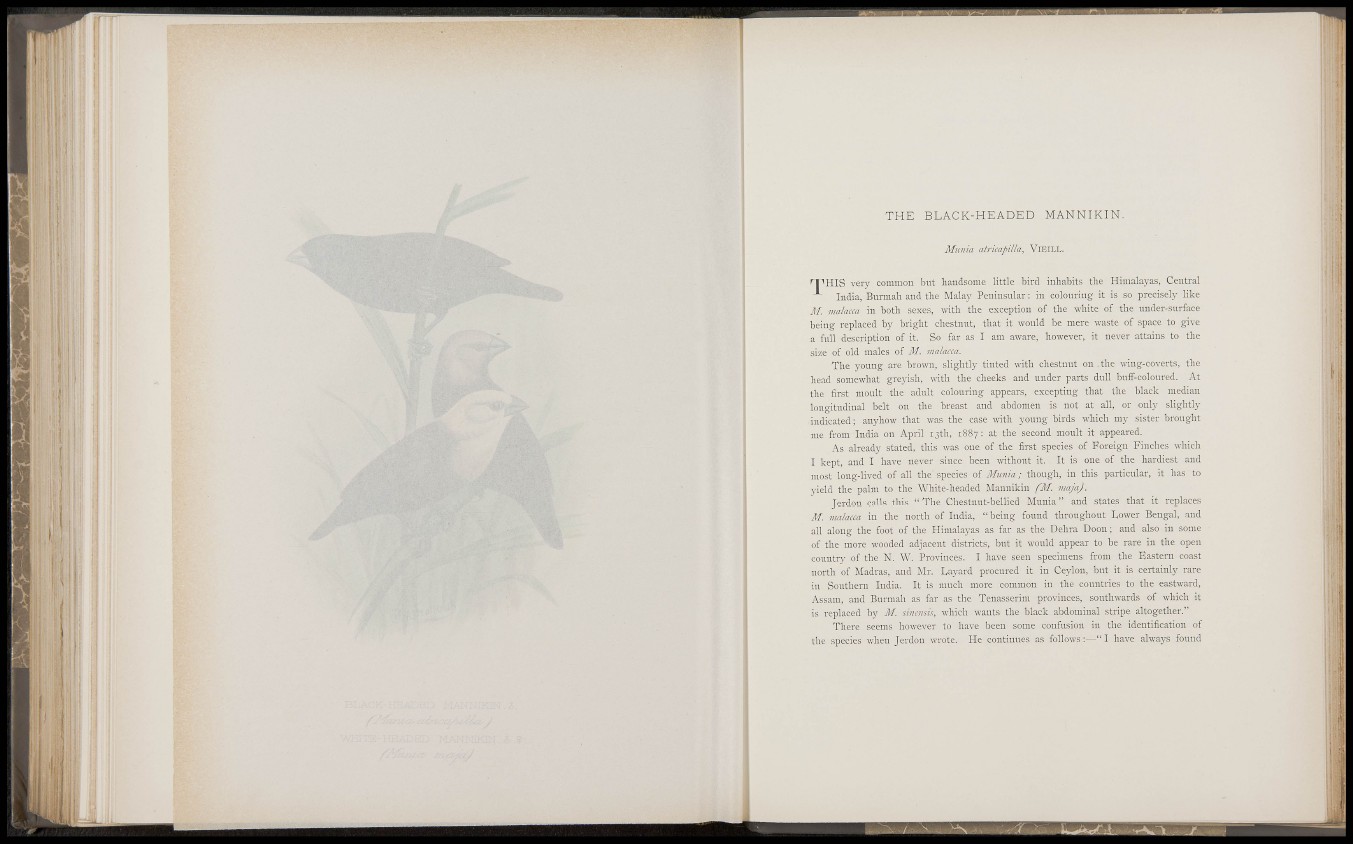
M: I' : ; I
I
1
i i . ;
Ill
THE BLACK-HEADED MANNIKIN.
Miinia atricapiUa, ViElLL.
'"["'HIS very common but liaiidsome little bird inhabits tlie Himalayas, Central
India, Bm-niah and the Malay Peninsular: in colouring it is so precisely like
]\L malacca in both sexes, with the exception of the white of the under-surface
being replaced by bright chestnut, that it would be mere waste of space to give
a full description of it. So far as I am aware, however, it never attains to the
size of old males of M. vialacca.
The young are brown, slightly tinted with chestnut on the wing-coverts, the
head somewhat greyish, with the cheeks and under parts dull buff-coloured. At
the first moult the adult colouring appears, excepting that the black median
longitudinal belt on the breast and abdomen is not at all, or only slightly
indicated; anyhow that was the case with young birds which my sister brought
me from India on April 13th, 1887: at the second moult it appeared.
As already stated, this was one of the first species of Foreign Finches which
I kept, and I have never since been without it. It is one of the hardiest and
most long-lived of all the species of Mania; though, in this particular, it has to
yield the palm to the White-headed Mannikin fM. viajaj.
Jerdou calls this " The Chestnut-bellied Muuia" and states that it replaces
M. malacca in the north of India, "being found throughout Lower Bengal, and
all along the foot of the Himalayas as far as the Dehra Doon ; and also in some
of the more wooded adjacent districts, but it would appear to be rare in the open
country of the N. W. Provinces. I have seen specimens from the Eastern coast
north of Madras, and Mr. Layard procured it in Ceylon, but it is certainly rare
in Southern India. It is much more common in the countries to the eastward,
Assam, and Burmah as far as the Tenasserim provinces, southwards of which it
is replaced by M. sinensis, which wants the black abdominal stripe altogether."
There seems however to have been some confusion in the identification of
the species when Jerdou wrote. He continues as follows:—"I have alwaj'S found